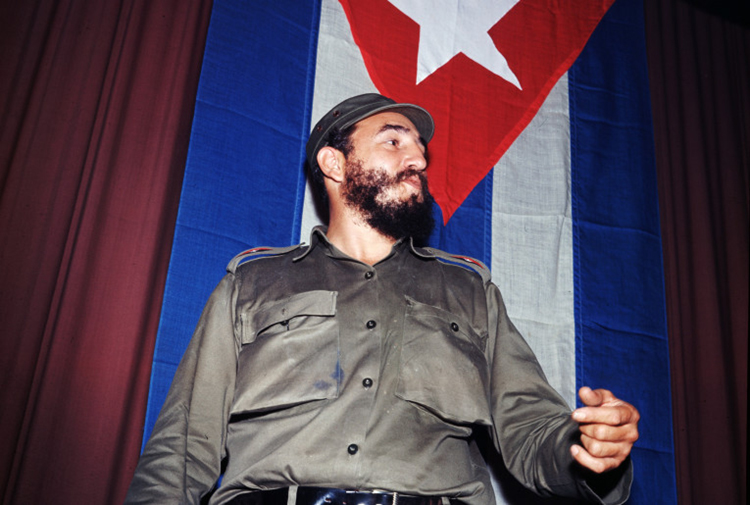Current Events Lesson Plan: November 24-30, 2016
Current Event: Fidel Castro (1926-2016)
Fidel Castro, a guerrilla leader who led a Communist revolution in Cuba and ruled the island from 1959 to 2008, died on November 25, at the age of 90. After word of Castro’s death spread, music was quieted in the capital city of Havana, and flags were lowered to half-staff. The government temporarily banned alcohol sales and suspended the professional baseball season. Castro was cremated the day after he died and an urn containing his ashes was on display in Havana. From there, a cortege was to carry his remains 750 miles (1,200 kilometers) to a final resting place in Santiago de Cuba, the city in eastern Cuba where Castro launched the revolution. Castro will be buried on Sunday, December 4, ending the government’s nine-day period of mourning.
Objective:
Fidel Castro was born on Aug. 13, 1926, in Biran, near Mayari, Cuba. He graduated with a law degree from the University of Havana in 1950 and briefly practiced law in the capital. In 1952, he ran for election to the Cuban House of Representatives. But troops led by former president Fulgencio Batista halted the election and ended democracy in Cuba. As a result of Batista’s actions, Castro tried to start a revolution against the Batista dictatorship. On July 26, 1953, Castro’s forces attacked the Moncada army barracks in Santiago de Cuba. Castro was captured and sentenced to 15 years in prison. Batista released him in 1955, however. Castro then formed the 26th of July Movement, a group of revolutionaries named after the date of his first revolt. He then went into exile in Mexico. Castro’s forces landed in Cuba in December 1956. Many rebels were killed, and Castro and other survivors fled to the Sierra Maestra, a mountain range in southeast Cuba. People from the surrounding countryside joined the rebellion. Batista fled from Cuba on Jan. 1, 1959, and Castro took control of the government. The Castro government provided improved education and health facilities for many Cubans. But the economy often was troubled. In the early 1960′s, Cuba began depending heavily on the Soviet Union for economic support. This support ended in 1991, when the Soviet Union was dissolved. Castro vowed that Cuba would remain a Communist country. However, in the early 1990′s, Cuba undertook limited reforms that loosened state control over parts of the country’s economy. In July 2006, Fidel temporarily gave control of the government to his brother Raúl while he recovered from emergency intestinal surgery. In February 2008, Fidel announced that he would not accept reelection to the presidency by Cuban leaders later that month. Cuba’s National Assembly then elected Raúl to succeed Fidel. Fidel died on Nov. 25, 2016. The Behind the Headlines news story and related World Book articles explore Fidel Castro and other topics related to Cuba.
Words to know:
- 26th of July Movement
- Che Guevara
- Communism
- Cuba
- Cuban missile crisis
- Fidel Castro
- Fulgencio Batista
- Guerrilla warfare
- Havana
- Raúl Castro
Discussion Topics:
1. Ask your students what they know about Cuba. (Students might say that Cuba is an island nation in the Caribbean region, Cuba is the only Communist state in the Americas, Havana is the country’s capital and largest city, Fidel Castro led the country from 1959 to 2008, Spanish is the country’s official language.)
2. Ask your students to name some other island nations other than Cuba. (Students might name Bahamas, Barbados, Cyprus, Iceland, Indonesia, Ireland, Jamaica, Japan, Madagascar, New Zealand, Philippines, Singapore, United Kingdom. Australia is classified as a continent rather than as an island because of its great size).
3. Ask your students to use World Book’s Timelines feature to view or add to the History of Cuba timeline. (Students may wish to use the “History” section of World Book’s “Cuba” article for help.)



